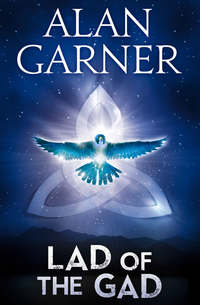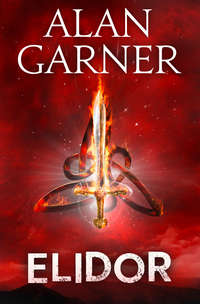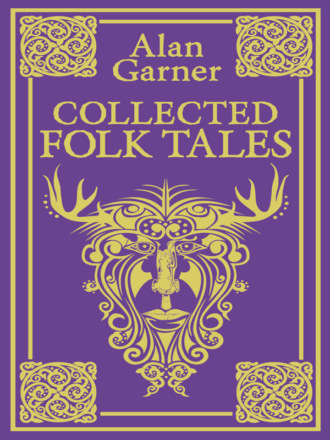
Полная версия
Collected Folk Tales
“If he should come now, what should we do?”
“That is not hard to say,” said the chief of the house. “Great welcome to him if he should come, for he has been a long time in trouble.”
Thereat Maelduin struck the clapper against the door-valve.
“Who is there?” said the doorkeeper.
“Maelduin is here,” said he himself.
“Then open!” said the chief. “Welcome is your coming.”
So they entered the house, and great welcome was made to them, and new garments were given them.
Maelduin then went to his own district, and Diuran the Rhymer took the five half-ounces of silver he had brought from the net. And they declared their adventures from beginning to end, and all the dangers and perils they had found on sea and land.
Now Aed the Fair, chief sage of Ireland, arranged this story as it stands here; and he did it so for delighting the mind and for the people of Ireland after him.

The fort over against the oak-wood,
Once it was Bruidge’s, it was Cathal’s,
It was Aed’s, it was Ailill’s,
It was Conaing’s, it was Cuilne’s,
And it was Maelduin’s;
The fort remains after each in his turn—
And the kings asleep in the ground.
Translated by Kuno Meyer


A young farmer named Heitaro lived near the tree, and he, more than any other, loved the huge willow. It was the first thing he saw on waking, and the last at sleeping. Its shape greeted him when he returned from the fields, and all day he could see its crest. Sometimes he would burn a joss-stick beneath its branches and kneel down and pray.
One day an old man of the village came to Heitaro and explained to him that the people were anxious to build a bridge over the river, and that they particularly wanted the willow tree for timber.
“My dear willow for a bridge?” said Heitaro, covering his face. “Planks below feet? No! Take my own trees first, and spare the willow.”
The villagers accepted Heitaro’s trees, and the willow stood.
One night, while Heitaro was sitting under the tree he saw a beautiful woman close beside him. She stood, and looked at him shyly, as if she wanted to speak.
“Honourable lady,” said Heitaro, “I shall go home. I see you wait for somebody you love, and my presence here is uncouth.”
“He will not come now,” said the woman.
“Has he grown cold?” said Heitaro. “It is terrible when a mock love woos and leaves ashes.”
“He has not grown cold,” she said.
“And yet he does not come?” said Heitaro. “What strangeness is this?”
“He has come! His heart has been always here, here under this willow tree.” And the woman smiled, and left him.
Night after night they met there. The woman’s shyness disappeared, and it seemed that she could not hear too much praise of the willow tree from Heitaro’s lips.
One night he said to her, “Little one, will you be my wife?”
“Yes,” she said. “Call me Higo, and ask no questions, for love of me.”
Heitaro and Higo were married, and they had a son called Chiyodo, and they were happy.
Great news came to the village, and it was not long before Heitaro learnt it. The Emperor wished to build a temple in Kyoto, and his ministers were searching the land for the best of timber. It would be an eternal honour to have given even a fragment of that holy shrine, and the villagers looked around them for a sacrifice that would be worthy.
There was only the willow.
Heitaro offered every tree on his land, and the price of his farm, but only the willow had the quality that was sought.
“Oh, wife, my Higo,” he said that evening, “they are going to cut down the willow. Before I married you I could not have endured it. But, having you, perhaps I shall get over it some day.”
The same night, Heitaro held his wife close for comfort in his sorrow, but he was woken by a loud cry.
“It grows dark!” said Higo. “The room is full of whispers. Are you there, Heitaro? Listen! They are cutting the willow tree!”
“Hush, my love, hush. I am here.”
“They are cutting me! Look how the shadow trembles in the moonlight! They are killing me! Oh, how they cut and tear! The pain, the pain! Put your hands here, and here. Surely the blows cannot fall now!”
Heitaro tried to ease her pain, but nothing he did could heal her.
“Love,” she said, pressing her wet face to his, “I am going now. My body is breaking. Such a love cannot be cut down. Heitaro. Heitaro. My hair is falling through the sky!”
The willow tree lay green and tangled on the ground.

Maggoty’s Wood is old.
Nothing grows.
Nobody knows.
Nothing goes.
Grandfathers wouldn’t dare
At midnight. Fathers told
Of giggling; children scared
Silent to the centre, whooping out,
Could do it once, learning rain
And leaves, badgers, and to walk
Lanes after.
Maggoty’s Wood is old,
And when the lanes are sold
And the houses ponder through,
It becomes an Unspoilt View.
Where grandfathers wouldn’t,
And where fathers told,
And children could do once,
Is Woodend Close.
And nothing grows.
Beneath the playpen and
Beneath the bed,
Beneath the arrogant garden,
Nothing goes.
Nobody knows.
Alan Garner
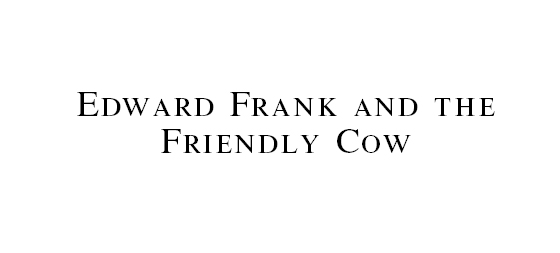

It was a marvellous-thin man, whose head was so high that Edward nearly fell over backwards in his efforts to gaze at it. His knees knocked together, and his heart sank. With great difficulty he gasped forth: “In the name of God, what is here? Turn out of my way, or I will strike thee!”
The giant then disappeared, and the frightened Edward, seeing a cow not far off, went towards her to lean on her, which the cow stood still and permitted him to do.

This story, and “The Green Mist”, were told by the old people and the young children who lived in Lincolnshire before the fenlands were drained. I think that “Yallery Brown” is the most powerful of all English fairy tales.

I was working on the High Farm to then, and nobbut a lad of sixteen or maybe eighteen years; and my mother and folks dwelt down by the pond yonder, at the far end of the village.
I had the stables and such to see to, and the horses to help with, and odd jobs to do, and the work was hard, but the pay good. I reckon I was an idle scamp, for I couldn’t abide hard work, and I looked forward all the week to Sundays, when I’d walk down home, and not go back till darklins.
By the green lane I could get to the farm in a matter of twenty minutes, but there used to be a path across the west field yonder, by the side of the spinney, and on past the fox cover and so to the ramper, and I used to go that way. It was longer for one thing, and I wasn’t never in a hurry to get back to the work, and it was still and pleasant like of Summer nights, out in the broad silent fields, mid the smell of the growing things.
Folk said as the spinney was haunted, and for sure I have seen lots of fairy stones and rings and that, along the grass edge; but I never saw nowt in the way of horrors and boggarts, let alone Yallery Brown, as I said before.
One Sunday, I was walking across the west field. It was a beautiful July night, warm and still, and the air was full of little sounds, as if the trees and grass were chattering to their selves. And all to once there came a bit ahead of me the pitifullest greetin I’ve ever heard, sob, sobbing, like a bairn spent with fear, and near heart-broken; breaking off into a moan, and then rising again in a long, whimpering wailing that made me feel sick nobbut to hark to it. I was always fond of babbies, too, and I began to look everywhere for the poor creature.
“Must be Sally Bratton’s,” I thought to myself. “She was always a flighty thing, and never looked after it. Like as not, she’s flaunting about the lanes, and has clean forgot the babby.”
But though I looked and looked I could find nowt. Nonetheless the sobbing was at my very ear, so tired like and sorrowful that I kept crying out, “Whisht, bairn, whisht! I’ll take you back to your mother if you’ll only hush your greetin.”
But for all my looking I could find nowt. I keekit under the hedge by the spinney side, and I clumb over it, and I sought up and down by, and mid the trees, and through the long grass and weeds, but I only frightened some sleeping birds, and stinged my own hands with the nettles. I found nowt, and I fair gave up to last; so I stood there, scratching my head, and clean beat with it all. And presently the whimpering got louder and stronger in the quietness, and I thought I could make out words of some sort.
I harkened with all my ears, and the sorry thing was saying all mixed up with sobbing:
“O, oh! The stone, the great big stone! O, oh! The stone on top!”
Naturally I wondered where the stone might be, and I looked again, and there by the hedge bottom was a great flat stone, near buried in the mools, and hid in the cotted grass and weeds. One of those stones as were used to call the Strangers’ Tables. The Strangers danced on them at moonlight nights, and so they were never meddled with. It’s ill luck, you know, to cross the Tiddy People.
However, down I fell on my knee-bones by the stone, and harkened again. Clearer nor ever, but tired and spent with greetin came the little sobbing voice.
“Ooh! Ooh! The stone, the stone on top.”
I was misliking to meddle with the thing, but I couldn’t stand the whimpering babby, and I tore like mad at the stone, till I felt it lifting from the mools, and all to once it came with a sigh, out of the damp earth and the tangled grass and growing things. And there, in the hole, lay a tiddy thing on its back, blinking up at the moon and at me.
It was no bigger than a year-old brat, but it had long cotted hair and beard, twisted round and round its body, so as I couldn’t see its clouts. And the hair was all yaller and shining and silky, like a bairn’s; but the face of it was old, and as if it were hundreds of years since it was young and smooth. Just a heap of wrinkles, and two bright black eyes in the mid, set in a lot of shining yaller hair; and the skin was the colour of the fresh turned earth in the Spring – brown as brown could be, and its bare hands and feet were brown like the face of it.
The greetin had stopped, but the tears were standing on its cheek, and the tiddy thing looked mazed like in the moonshine and the night air. It was wondering what I’d do, but by and by it scrambled out of the hole, and stood looking about it, and at myself. It wasn’t up to my knee, but it was the queerest creature I ever set eyes on. Brown and yaller all over; yaller and brown, as I told you before, and with such a glint in its eyes, and such a wizened face, that I felt feared on it, for all that it was so tiddy and old.
The creature’s eyes got some used to the moonlight, and presently it looked up in my face as bold as ever was.
“Tom,” it says, “you’re a good lad.”
As cool as you can think, it says, “Tom, you’re a good lad,” and its voice was soft and high and piping like a little bird twittering.
I touched my hat, and began to think what I had ought to say; but I was clemmed with fright, and I couldn’t open my gob.
“Houts!” says the thing again. “You needn’t be feared of me; you’ve done me a better turn than you know, my lad, and I’ll do as much for you.”
I couldn’t speak yet, but I thought: “Lord! For sure it’s a bogle!”
“No!” it says, quick as quick, “I’m not a bogle, but you’d best not ask me what I am; anyways, I’m a good friend of yours.”
My very knee-bones struck, for certainly an ordinary body couldn’t have known what I’d been thinking to myself, but it looked so kind like, and spoke so fair, that I made bold to get out, a bit quavery like:
“Might I be asking to know your honour’s name?”
“Hm,” it says, pulling its beard, “as for that,” and it thought a bit, “ay so,” it went on at last, “Yallery Brown you may call me; Yallery Brown. It’s my nature, you see. And as for a name, it will do as well as any other. Yallery Brown, Tom, Yallery Brown’s your friend, my lad.”
“Thank you, master,” says I, quite meek like.
“And now,” he says, “I’m in a hurry tonight, but tell me quick, what shall I do for you? Will you have a wife? I can give you the rampingest lass in the town. Will you be rich? I’ll give you gold as much as you can carry. Or will you have help with your work? Only say the word.”
I scratched my head. “Well, as for a wife, I have no hankering after such. They’re but bothersome bodies, and I have women folk to home as will mend my clouts. And for gold; that’s as may be,” for, you see, I thought he was talking only, and may be he couldn’t do as much as he said, “but for work – there, I can’t abide work, and if you’ll give me a helping hand in it, I’ll thank you.”
“Stop,” says he, quick as lightning. “I’ll help you, and welcome, but if ever you say that to me – if ever you thank me, do you see? – you’ll never see me more. Mind that now. I want no thanks, I’ll have no thanks, do you hear?” And he stamped his tiddy foot on the earth and looked as wicked as a raging bull.
“Mind that now, great lump as you be,” he went on, calming down a bit, “and if ever you need help, or get into trouble, call on me and just say, ‘Yallery Brown, come from the mools, I want thee!’ and I shall be with you to once. And now,” says he, picking up a dandelion puff, “good night to you.” And he blowed it up, and it all came in my eyes and ears.
Soon as I could see again, the tiddy creature was gone, and but for the stone on end, and the hole at my feet, I’d have thought I’d been dreaming.
Well, I went home and to bed, and by the morning I’d near forgot all about it. But when I went to the work, there was none to do! All was done already! The horses seen to, the stables cleaned out, everything in its proper place, and I’d nowt to do but sit with my hands in my pockets.
And so it went on day after day, all the work done by Yallery Brown, and better done, too, than I could have done it myself. And if the master gave me more work, I sat down by, and the work did itself, the singeing irons, or the besom, or what not, set to, and with never a hand put to them would get through in no time. For I never saw Yallery Brown in daylight; only in the darklins I have seen him hopping about, like a will-o-the-wyke without his lanthorn.
To first, it was mighty fine for me. I’d nowt to do, and good pay for it; but by and by, things began to go arsy-varsy. If the work was done for me, it was undone for the other lads. If my buckets were filled, theirs were upset. If my tools were sharpened, theirs were blunted and spoiled. If my horses were clean as daisies, theirs were splashed with muck. And so on. Day in, day out, it was always the same. And the lads saw Yallery Brown flitting about of nights, and they saw the things working without hands of days, and they saw as my work was done for me, and theirs undone for them, and naturally they began to look shy on me, and they wouldn’t speak or come near me, and they carried tales to the master, and so things went from bad to worse.
For – do you see? – I could do nothing myself. The brooms wouldn’t stay in my hand, the plough ran away from me, the hoe kept out of my grip. I’d thought oft as I’d do my own work after all, so as may be Yallery Brown would leave me and my neighbours alone. But I couldn’t. I could only sit by and look on, and have the cold shoulder turned on me, whiles the unnatural thing was meddling with the others, and working for me.
To last, things got so bad that the master gave me the sack, and if he hadn’t, I do believe as all the rest of the lads would have sacked him, for they swore as they’d not stay on the same garth with me. Well, naturally I felt bad. It was a main good place, and good pay, too; and I was fair mad with Yallery Brown, as had got me into such a trouble. So before I knew, I shook my fist in the air and called out as loud as I could:
“Yallery Brown, come from the mools; thou scamp, I want thee!”
You’ll scarce believe it, but I’d hardly brung out the words as I felt something tweaking my leg behind, while I jumped with the smart of it. And soon as I looked down, there was the tiddy thing, with his shining hair, and wrinkled face, and wicked, glinting black eyes.
I was in a fine rage, and should liked to have kicked him, but it was no good, there wasn’t enough of him to get my boot against.
But I said to once: “Look here, master, I’ll thank you to leave me alone after this, do you hear? I want none of your help, and I’ll have nowt more to do with you – see now.”
The horrid thing brak out with a screeching laugh, and pointed his brown finger at me.
“Ho ho, Tom!” says he. “You’ve thanked me, my lad, and I told you not, I told you not!”
“I don’t want your help, I tell you!” I yelled at him. “I only want never to see you again, and to have nowt more to do with you. You can go!”
The thing only laughed and screeched and mocked, as long as I went on swearing, but so soon as my breath gave out, “Tom, my lad,” he says, with a grin, “I’ll tell you summat, Tom. True’s true I’ll never help you again, and call as you will, you’ll never see me after today; but I never said as I’d leave you alone, Tom, and I never will, my lad! I was nice and safe under the stone, Tom, and could do no harm; but you let me out yourself, and you can’t put me back again! I would have been your friend and worked for you if you had been wise; but since you are no more than a born fool, I’ll give you no more than a born fool’s luck; and when all goes arsy-varsy, and everything agee – you’ll mind as it’s Yallery Brown’s doing, though happen you didn’t see him. Mark my words, will you?”
And he began to sing, dancing round me, like a bairn with his yaller hair, but looking older nor ever with his grinning wrinkled bit of a face:
“Work as you will,
“You’ll never do well;
“Work as you might,
“You’ll never gain owt:
“For harm and mischief and Yallery Brown
“You’ve let out yourself from under the stone.”
Ay! He said those very words, and they have ringed in my ears ever since, over and over again, like a bell tolling for the burying. And it was the burying of my luck – for I never had any since. However, the imp stood there mocking and grinning at me, and chuckling like the old devil’s own wicked self.
And man! – I can’t rightly mind what he said next. It was all cussing and swearing and calling down misfortune on me; but I was so mazed in fright that I could only stand there, shaking all over me, and staring down at the horrid thing; and I reckon if he’d gone on long, I’d have tumbled down in a fit. But by and by, his yaller shining hair – I can’t abide yaller hair since that – rose up in the air, and wrapped itself round him, while he looked for all the world like a great dandelion puff; and he floated away on the wind over the wall and out of sight, with a parting skirl of his wicked voice and sneering laugh.
I tell you, I was near dead with fear, and I can’t scarcely tell how I ever got home at all, but I did somehow, I suppose.
Well, that’s all; it’s not much of a tale, but it’s true, every word of it, and there’s others besides me as have seen Yallery Brown and known his evil tricks – and did it come true, you say? But it did sure! I have worked here and there, and turned my hand to this and that, but it always went agee, and it is all Yallery Brown’s doing. The children died, and my wife didn’t; the beasts never fatted, and nothing ever did well with me. I’m going old now, and I shall must end my days in the house, I reckon; but till I’m dead and buried, and happen even afterwards, there’ll be no end to Yallery Brown’s spite at me. And day in and day out I hear him saying, whiles I sit here trembling:
“Work as you will,
“You’ll never do well;
“Work as you might,
“You’ll never gain owt;
“For harm and mischief and Yallery Brown
“You’ve let out yourself from under the stone.”
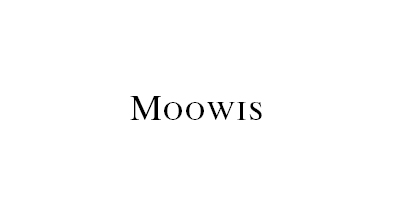

He could summon chieftains’ daughters. She was beloved of warriors.
He wooed her. She mocked him.
She told all who listened of how he had come to her, humble, gentle, naked in his heart. The squaws cackled, and the braves jeered, and he lay in his tent and dared not show his tears. The tears chilled his soul.
It was the time for the tribe to move north for the Summer. They broke the Winter camp, and the village was bustle and noise, but still he lay in his tent and would not come out, nor would he speak. So they took the tent from over him, and left him alone on the prairie, while they went north after the deer and the buffalo.
When there was only the level sky to see him, and the silence to hear him, he moved about among the ashes of the dead fires, and the patches of earth, and the forsaken rubbish, gathering a broken bead, a scrap of rotted leather, a twist of rag, a spoilt headdress; and he took them to a sheltered place among the rocks, where some of the Winter’s snow still lingered. He gathered the snow, and heaped it, as the village children did, and trimmed it and smoothed it, and rounded a head, and put in stones for eyes and nose and teeth. Then he stuck the bits of rubbish here and there about the snow, and when he had finished he sang a song.
The tribe watched him come into the camp one cold dawn a week later. He had travelled through the nights to be with them, and by his side was a tall and fierce warrior, a young chieftain of the Cree by the marks on feather and skin. The name of this warrior was Moowis.






